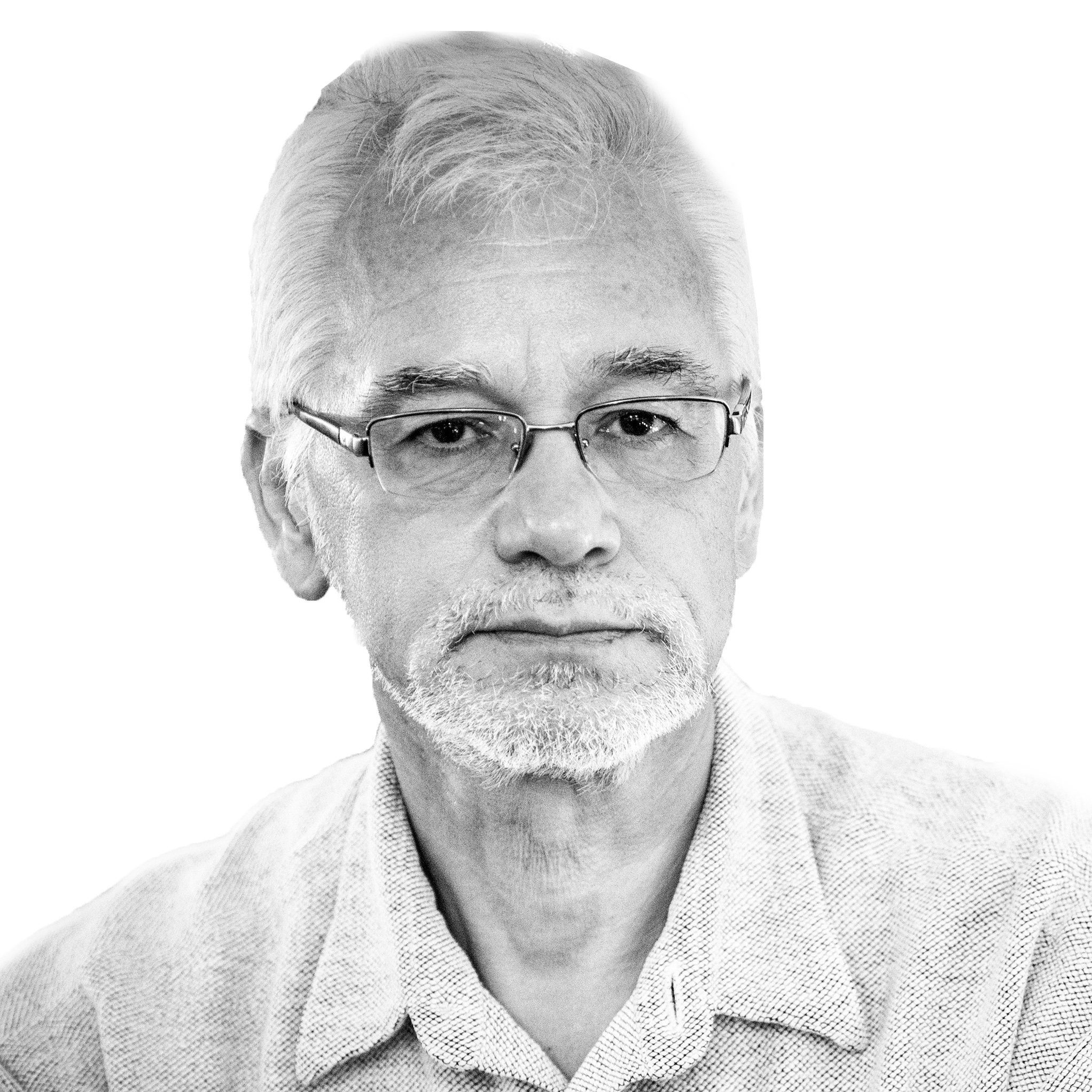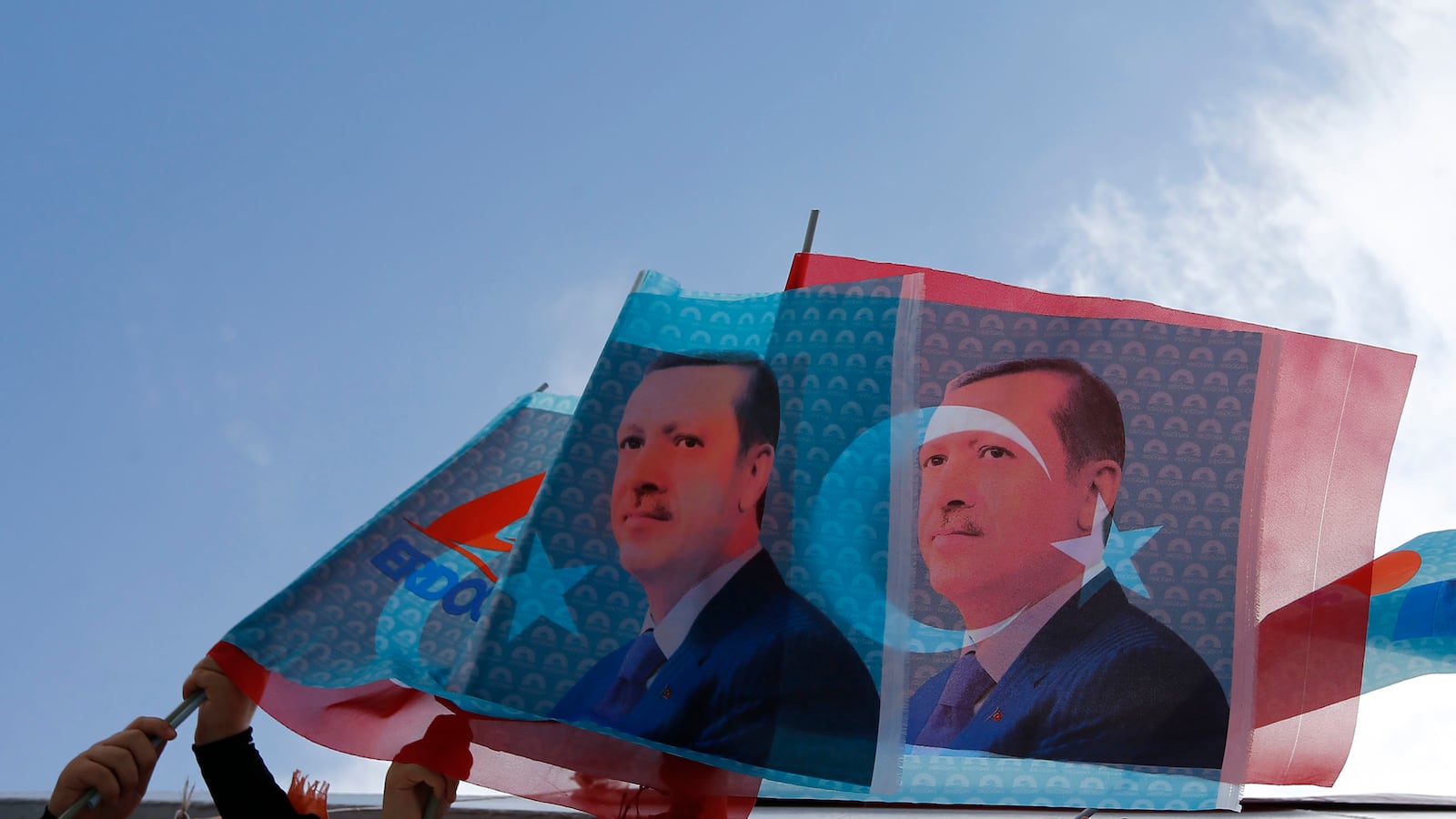ISTANBUL, Turkey — A diplomatic crisis looms. Turkey, a key U.S. ally and the only NATO member that borders areas controlled by ISIS jihadists in Syria and Iraq, is in a prime location to hit the extremists next door. But it prefers not to.
Instead, Ankara is seeking a low-profile role—so low as to be almost invisible—in the international alliance that Washington is building up against the so-called caliphate, and that fact is undermining the American strategy to strike back against the terrorists President Barack Obama deems “unique in their brutality.”
Washington, obviously aware of the problem, is working overtime to get some sort of concrete supportive commitments from the Turkish government for a strategy in which American airpower supports regional armies with boots on the ground to crush the ISIS forces. Defense Secretary Chuck Hagel visited Ankara on Monday; Secretary of State John Kerry is expected in the Turkish capital Friday. But background briefings to the Turkish press suggest that President Recep Tayyip Erdogan and his government will refuse to give the United States more than the bare minimum of support: It won’t allow the Americans to attack from NATO air bases in Turkey and it will decline to let Turkish troops take part in combat operations.
Before traveling to Turkey, Kerry tried to downplay Ankara’s reluctance, despite the fact that the NATO ally refused to sign a joint declaration of Arab and other states outlining the battle against ISIS in a meeting in Jeddah, Saudi Arabia. Kerry said Turkey was dealing with some “sensitive issues,” according to the BBC.
Following talks by Prime Minister Ahmet Davutoglu with top military and diplomatic officials on Wednesday, the newspaper Yeni Safak, which often reflects the government line, reported that Turkey would opt for a “passive” role in the fight against ISIS in Syria. Other news reports said Turkey would strengthen controls along the Syrian border and open its air space and its air force bases for logistical operations and for humanitarian flights—for example to save the lives of U.S. pilots—but not for the expected attacks on ISIS targets. Direct participation of Turkey’s modern air force in the attacks is out of the question as well.
Ankara’s position recalls its refusal in 2003 to allow the deployment of U.S. ground troops for the attack on Saddam Hussein’s forces in Iraq. That reluctance later seemed prudent. But Turkey’s hesitation, now, may be more a factor of confusion or, indeed, of fear.
Clearly the speed and extent of the ISIS blitzkrieg next door has thrown Turkey’s policy toward Syria and Iraq into disarray, says Semih Idiz, a Turkish political analyst and columnist for the Hurriyet Daily News. “They have no strategy, they have no plan, they only have the hope that other people will do the job for them,” he told The Daily Beast. Such is the sense of urgency that Turkish officials are now fretting over the problem “not on a day-to-day basis, but almost on an hour-by-hour basis,” Idiz added. “The whole Middle East policy is in complete shambles. They are paralyzed.”
Officially, Turkey argues it has to keep its operations low-key because a more active posture would endanger the life of 46 of its citizens held hostage by ISIS. The jihadists kidnapped the Turks and three of their Iraqi colleagues when they overran the Turkish consulate in the northern Iraqi city of Mosul in June. Ankara says it is trying to secure the hostages’ release, but has ordered a news blackout that makes it difficult to assess where those efforts stand.
In the event, some analysts believe Ankara is hiding behind the hostage crisis and that the real reasons for Turkey’s reluctance to get involved run much deeper.
Only a few years ago, Turkish foreign policy in the Middle East was riding high. The country’s leaders were confident that its economic and political power, along with changes brought on by the Arab Spring uprisings, would make Ankara the most important power in the region. Davutoglu, who was foreign minister during that time, declared in 2010 that “not even a leaf can stir in the Middle East without us knowing about it.” Turkey, in league with the hugely wealthy emirate of Qatar, lent conspicuous support to the Muslim Brotherhood and other Sunni groups in the region who seemed to be on a roll.
In Syria, after protests erupted in 2011 against the government of President Bashar Assad, Turkey threw its backing behind his opponents, who had long been led clandestinely by the Muslim Brotherhood. But as Assad fought back with effective savagery, Ankara turned to supporting a broader political and military opposition. It also tolerated an uncontrolled traffic of men and weapons across the long border. “At the time, the Turks were certain that they could control those groups,” a foreign diplomat told The Daily Beast. “Now it’s blowing up in their face.”
Besides taking Turkish hostages, and using Turkish territory to bring supplies and new fighters into Syria, ISIS has been making millions by selling diesel fuel on the Turkish black market. More directly worrisome from Ankara’s point of view, Turkish news media have quoted some ISIS members as threatening to stage attacks within the country. Around 1,000 Turks are estimated to have joined the group in Syria. More than a million Syrian refugees, meanwhile, have flooded into Turkish camps and Turkish cities.
Ankara’s policies have been upended further by the fact that Turkish-Kurdish rebels of the Kurdistan Workers’ Party (PKK) are playing a major role in the fight against ISIS in northern Iraq. Foreign Minister Mevlut Cavusoglu said this week that the government is concerned the PKK, which has been waging war against Ankara for 30 years, could receive sophisticated arms from Western nations supporting Kurdish forces fighting ISIS.
Even without the hostage situation, Ankara would face difficult options. Turkey could take part in Western strikes against ISIS and risk a backlash from the jihadists themselves and other Islamist groups in the region. Or Turkey could refuse to have anything to do with the strikes, angering its Western allies and being a mere spectator despite its ambition to become a regional leader. Faced with that choice, Ankara appears to have decided to muddle through, officially joining the alliance against ISIS, but keeping out militarily.
As the U.S. and other NATO allies get ready to attack ISIS in Syria, Turkey has been further embarrassed by reports that wounded ISIS fighters have enjoyed free medical treatment in Turkish hospitals. The Taraf daily, which is critical of the government, reported on Thursday that nine jihadists, including a member of the ISIS leadership identified as Ahmet el H., had undergone treatment in hospitals in the city of Sanliurfa near the Syrian border. Turkish taxpayers’ money had been used to pay their hospital bills, the newspaper reported.
Turkish officials say state institutions like hospitals help all sick or injured Syrians as they come over the border, but insist that this is a humanitarian gesture and does not mean that Ankara supports ISIS.






